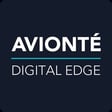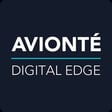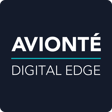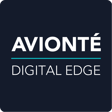Become a Creator today!Start creating today - Share your story with the world!
Start for free
00:00:00
00:00:01

The Future of Recruitment: How AI and Automation Are Transforming the Recruiter's Job
AI and automation are changing the way we live, shop, and work—and the staffing industry is no exception. Historically slow to adopt new technology, the world of recruiting is now experiencing a wave of change.
So, how exactly will AI and automation impact recruiters' roles in the near future? And how is Avionté using these advancements to streamline the daily challenges recruiters face? In this episode, we are joined by Joe Hiber, Avionté’s former Director of Product and current Director of Product Management for SimpleVMS.
Transcript
Introduction to AI in Staffing
00:00:00
Speaker
AI and automation are transforming how we shop, dine, and live, and even more so how we work. Industries like staffing, historically slow to adopt new technologies, are now seeing rapid shifts. But how exactly will AI and automation change the role of recruiters, especially in the near term? And how is Aviante leveraging these advancements to simplify the complexities of a recruiter's day-to-day work to create a new future for recruitment?
00:00:30
Speaker
Find out in this episode of Aviante Digital Edge.
Chris Ryan on AI Transforming Staffing
00:00:37
Speaker
Hi, I'm Chris Ryan, Chief Strategy and Marketing Officer at Aviante. These days, everyone's buzzing about how advancements like AI are reshaping the way we live and work. And the staffing industry is no exception. The industry is on the brink of major change. And as the saying goes, you can either seize the reins or risk being left behind.
00:00:59
Speaker
But what does that actually look like in practice?
Leveraging AI in Recruitment
00:01:02
Speaker
Well, we've already experienced glimpses of AI and automation in our everyday lives. The real question is, what's next? How should staffing leaders and recruiters prepare for AI's rapid evolution? Which parts of the industry will feel the biggest impact first? And finally, how is Aviante leveraging automation and AI to help recruiters work smarter, faster, and more effectively?
Joe Hibert's Background and Insights
00:01:27
Speaker
To help answer these questions, I'm thrilled to welcome our former director of product and our current director of product management for Simple VMS, Joe Hibert. Joe not only played a key role in shaping Aviante staffing technology, but he also brings a wealth of firsthand experience from his time as a recruiter, a background that undoubtedly shapes his approach to building tools that truly serve the needs of recruiters. Joe, thanks so much for joining us today.
00:01:55
Speaker
Hey Chris, thanks for having me. So before we get started, tell us a little bit more about yourself. Before you joined Aviante, you had some hands-on experience in the staffing industry as a recruiter for a local staffing firm. Can you tell us more about that early experience? Yeah, like many staffing and recruiters, I fell into the industry firsthand. My dad had worked previously as a branch manager for a staffing agency and I spent many summers working on an assignment role, getting in those extra income hours, if you will. But my college experience was a little different. I actually, as a freshman in college, took on a recruiting role where I filled in for a maternity leave. And what once was just supposed to be a two-week assignment turned into a full-time role.
Storytelling in Recruitment
00:02:40
Speaker
And later I actually advanced into a career in staffing and recruiting, and I love the recruiting industry.
00:02:45
Speaker
So I'm curious, what was it about that early experience that got you hooked? What was your day to day experience like as a recruiter? Yeah. My initial experience was as a light industrial and clerical recruiter. And so we met all walks of life. And one of the things and I was really interested in learning the story of people.
00:03:04
Speaker
I was able to take those stories and ultimately apply them to filling roles. So it was really fascinating for me to see people that needed a position, come into the office, learn their story, and then place them on an assignment that could ultimately turn fruitful for them. So there was a lot of gratification in your day-to-day work. Looking back, what were some of the tasks that were most time consuming or pulled you away from higher priority activities?
00:03:29
Speaker
Were there aspects of the job where you wished you had more technology or automation to support you? So I definitely had challenges inside of the light industrial and clerical space. But I think one of the interesting avenues that I progressed into was IT staffing and in IT staffing and more. direct type placement, one of the challenges that we faced was just re reformatting and retelling a person's story. So looking at somebody's resume and saying, how do I really explain who this person is to a hiring manager? And so one of the places that I think technology, especially AI, can assist with is helping to construct someone's story, being able to articulate where they've been, what they're interested in doing, and why they might be a fit for a particular role.
00:04:14
Speaker
So there are people who are perfectly qualified for a role, but might not be good at explaining why they're qualified for that role. Exactly. You know, one of the main roles as a recruiter is you're a relationship builder and a connector. And one of the biggest challenges in the recruiting space is being able to retell that story as to why someone is that great fit.
Transition to Product Management
00:04:34
Speaker
Yeah, interesting. Normally, I don't think of a recruiter as a storyteller, but in a sense, that's a skill that is going to be very important if you're going to connect people to an employer and make it work. So now you're a director of product at Aviante, and I have to ask what inspired you to transition from being a recruiter on a day-to-day basis to going into technology. And I'm also curious how your early experiences actually shaped the way you approach developing software and product development at Aviante.
00:05:04
Speaker
Yeah, how I landed into my product director role was I had a strong interest in technology. As I mentioned, I was filling technology consultants as a full-time role. and And what I was ultimately doing was learning really what those roles were filling and what jobs people were doing. I'm a natural builder at heart. And so a role in product building for my former career set was something I was really interested in. I got to learn the actual challenges that recruiters were facing, especially with technology.
00:05:34
Speaker
and learn that I could translate my experience into the actual product and say, Hey, how can I help my colleagues to perform their job much faster, much quicker?
AI Enhancing Recruiter Efficiency
00:05:44
Speaker
And so leveraging that experience, I worked my way up through the roles here at Aviante, initially starting as a trainer, learning a ton about all the different facets of staffing to then moving into a product role where we're building products for the very folks that I was once training and once was a part of myself.
00:06:01
Speaker
So it's a fascinating role to have. There's a lot of insight coming from all sorts of different places, HR tech being one of them, ASA, and a ton of different avenues um amongst also our clients. It's interesting because to be a good recruiter, you have to be really good at building relationships and working in products sometimes forces you to be very focused. How do you reconcile that?
00:06:25
Speaker
Just like being a recruiter, we are very much in product, also relationship builders with our customers. It's how we get informed on how to build our next feature set. Their insight is super important to us because ultimately but we're building for them. So having a relationship with our customers and learning about features, what works well, what doesn't work well, and then building and solutioning around that is one of the best parts of my job. Interesting.
00:06:52
Speaker
Well, let's get into the meat of the discussion now. Everyone's talking about automation and artificial intelligence, and it's transforming a lot of different industries. But how do you see artificial intelligence transforming or reshaping the role of recruiters? So I think that AI will become just one of the strongest tools inside of a recruiter's tool belt.
00:07:16
Speaker
What I see in the future, at least to the immediate future is AI isn't going to replace the need for recruiters. It's only going to make their job even but easier and more efficient. I think AI will become one of the the biggest efficiency drivers in a recruiter's life. Everything from creating content, so generating job descriptions, helping write a resume, helping writing a cover letter, things like that.
00:07:41
Speaker
That recruiters spend and an inordinate amount of time on will become much, much easier. You'll also be able to leverage AI to identify who should I be spending my time on and who should I really be working with to generate future sales leads, future opportunities. I also see AI as a great research tool to identify who is that perfect fit candidate when trying to make a match between employer and candidate.
00:08:09
Speaker
So the tools that we're seeing with AI, you're still going to have the recruiters holding the relationship. However, the the means to which they can staff, the amount of people they can help.
00:08:21
Speaker
ah will extremely go up. But keep in mind, that's a double-edged sword. Talent also have the ability to use these tools to apply to jobs at a 10x faster rate than they were before. So it's going to be even more important that these tools are used to screen candidates, be able to identify those that are those perfect fit. Because right now, recruiters also have the risk of being inundated with talent because it is so much easier for them to apply.
00:08:46
Speaker
So AI is almost a double-edged sword. it's It's both great for the recruiter and that you'll be able to identify candidates faster, but candidates are also using those to identify job leads faster.
00:08:57
Speaker
You could have the the talent's AI calling up the recruiter's AI and the the two artificial intelligence entities are having their own conversation and maybe their own relationship. But that's all speculative in the future. I'm curious, what are some of the impacts that recruiters and staffing agencies are likely to see in the very near future, like within the next three months, the next six months, the next year? Short-term perspective, like I said, I think that that you're going to see an emergence of this operational AI where ultimately AI technologies are going to direct recruiters on where to spend their time, where where to provide those instant efficiencies. So I think in the near term, you're going to see that recruiters are going to be able to deliver talent much faster and match talent to jobs much faster. As AI expands out six months a year out, we're seeing an emergence of this AI as an agent trend, where AI is actually doing tasks on behalf of the recruiter.
00:09:57
Speaker
Things like interview chat bots or conversational AI, you know, conducting an interview, things like that. And then furthermore, I think that the future again, just becomes once you combine a bunch of AI tool sets together, you'll start to see massive gains across the recruiters day, all kind of coming into one.
AI in Job Posts and Interview Scripts
00:10:16
Speaker
So let's talk about some of these specific tasks and you've alluded to a couple of different things, but let's say a job requisition comes in now. ah What is AI going to help the recruiter do to get that job requisition up faster? Yeah. So you think about it, job requisitions typically come in from a hiring manager. There's somebody that understands their workflow very, very well and sometimes utilize, you know, keywords or industry trends that are super specific to them and their specific domain.
00:10:46
Speaker
I think what AI will provide is somebody who's building a job post that isn't directly in that domain, it allows for them to be able to advertise to talent that are.
00:10:57
Speaker
So being able to articulate a job posting very clearly to specific talent is one of the big advantages that AI will have. So AI might actually do a better job of helping a recruiter market the job to a talent pool or to a broad audience, or maybe figure out which audiences you should even send that job description to. Exactly. And and then you take it another step farther from the job advert perspective. Now you have these talent coming in,
00:11:27
Speaker
And it's how do I interview them? What questions do I ask? What things should I be looking for with these talent? So AI is another great tool where, again, you can build interview scripts, be able to easily analyze their responses to say, hey,
00:11:40
Speaker
Is this talent the exact match for the position that I might not know a ton about? Got it. So I'm curious, will talent be willing to talk to a chatbot either live or or via text versus talking to a recruiter? What evidence do we have that people are actually willing to do that? And when should the recruiter be involved in the interview? That's a great question. and I think it's going to vary industry by industry.
00:12:06
Speaker
I think one of the things specific to talent when they're looking for a job is that they're interested in what is the next step. One of the things that I think as a job market and job boards have really evolved, people are used to submitting an application and ultimately it going into a black hole. So one of the pieces that I think is most important and interesting about AI is that instant engagement with the talent. Suddenly when talent are engaging with a bot,
00:12:34
Speaker
Maybe it is doing a pre-screening for them, or maybe it is telling them what the job is about. It allows for them to have a next step. And when you keep the talent engaged with a next step, they're much more likely to continue to engage with you on the post steps after the apply process.
Chatbots in Pre-screening
00:12:50
Speaker
Hey, how do I interview? What's my next step? What's my next step? And what chatbots allow for is is that ability for talents to have that next step.
00:12:59
Speaker
when they are applying outside of typical business hours, when somebody isn't in your branch office, for example. Now, you said something interesting, which is using it for pre-screening. I would imagine that a very useful way of using a chatbot would be to quickly figure out whether or not somebody is qualified for a job before you actually engage them in a more detailed interview. Is that what you're implying?
00:13:24
Speaker
Exactly. It's exactly what I'm applying and doing a call back to a little earlier in the podcast. One of the things that I think is super important is, is that talent are going to be able to apply so much faster. So being able to hone in a recruiter's time on where to spend their time, that pre-screening bot just gives you a list of people that are already engaged and identified as a pre-fit for the opportunity. Of course, you're still going to want to do your relationship steps of, you know, having them come in for an interview, discussing the position with them.
00:13:52
Speaker
and having that human touch, but that first step of who do I spend my time with is drastically cut short when you have a list of people that are a potential match. So it's interesting in these particular applications, nowhere are you actually talking about replacing the recruiter. You're actually looking for automation that will make the recruiter's job a little easier. But there are a lot of recruiters that worry that at some point this technology might replace them or might diminish the personal touch. When I talk to staffing agencies,
00:14:26
Speaker
They often talk about how they're very proud of their personal touch and their ability to work with people is being extremely important to who they are and to their culture. So how do you address these concerns when an agency says, I'm not sure I want to work with this technology because it's taking the humanity out of my job? Great question, Chris. And I think that we see it oftentimes too when we're out discussing AI and in the marketplace. We hear that question a lot. And I think the short answer is no.
00:14:55
Speaker
I don't feel like that will be the case. Staffing and recruiting is still a relationship business, and it's it's a two-sided relationship business. AI isn't going to replace that. You have a relationship between the agency and the employer, and you have a relationship between the talent and the staffing agency as well. Both needs must still be met. Agency staff must work with the customer to understand their need and what type of talent they typically like. What is that perfect match, so to speak?
00:15:25
Speaker
And same thing for when talent work with recruiters, they want to make sure that the recruiter is somebody that's out looking in their best interest and making sure that there's future placements for them. So I don't believe that AI is going to replace the need for a recruiter. I think it just is a tool in the tool belt that allows for a recruiter to do their job more efficiently. It takes out the mundane tasks such as re reformatting a resume, building a job description, things like that.
00:15:53
Speaker
and allows the recruiter to focus on the relationship between them and the talent or them and the buyer. So arguably, are you saying you think it's essential for recruiters to use automation and AI despite those fears? What would you tell a young recruiter who's getting into the business? Would you tell them learn the technology, learn how to use the automation and the tools? Absolutely. No longer do recruiters need to learn how to build complex searches.
00:16:20
Speaker
New recruiters can learn how to do advanced searches by simply using AI tools. They can learn how to pre-screen talent better by using AI tools. It's a great research tool to be able to give new recruiters the ability to really recruit the best fit candidate. So we often talk about the concept of having a best-in-class ATS to support your recruiting process.
00:16:46
Speaker
And I'm curious, in light of the development of AI and automation, in your opinion, what features or capabilities define a best in class ATS? The ATS is really the center hub of your entire business operations. So when you think about an ATS and what constitutes something as best in class, first off, it has to be organized well. If you're going to be leveraging new AI technology,
00:17:14
Speaker
Your data has to be organized in a way that can ultimately use that tool to leverage it. So having organized data sets, such as skills, certifications, things that ultimately define who a talent is.
Compliance and Data Privacy in AI
00:17:26
Speaker
In order to be able to leverage an ATS technology, AI needs to be able to have that data set in an understandable, organized way to be able to leverage that tool. So having a best in class ATS is super important when you are looking at either A,
00:17:41
Speaker
a tool developed by that ATS or be a partner that integrates with that ATS. It's important that the data structures behind it is something that AI can leverage. Beyond that feature, again, you have things like easy to search, easy to create job descriptions, features that ultimately make that recruiter's day just a little bit faster. So buying technology is not necessarily always an easy decision. And I know a lot of staffing agencies struggle both with technology selection and adoption. If you were advising a friend or a relative in the staffing industry about
00:18:16
Speaker
how to evaluate technology and technology partners. What are some of the key things that a recruiter or staffing agency should be looking for in particular? I think it's important for stakeholders to understand what success looks like, what business problems are they looking to solve. When I think of Aviante, we are the best in class, especially when it comes to our front office and back office. So having a full back office suite at the capable hands of recruiters, I can easily solve all the needs for my organization in one tool set, I think is important. Questions that they should be asking. I think compliance is another one of the big important things, especially in ah HR tech, staffing and recruiting being a foundation of that.
00:19:02
Speaker
So I think that understanding the compliance and making sure that my vendor understands compliance is one of the questions that I would be asking if I was evaluating a technology partner. Got it. So let's talk a little bit about Aviante in particular. Can you share more about how ah Aviante is leveraging AI and automation to empower recruiters in its products, especially right now in 2025? Yeah, I'm really excited about some of our products that are currently in early adopter phase, and we'll be going out to general lease real soon.
00:19:34
Speaker
Specifically, the process around job description creation all the way through chatbot automation. And let me walk you through an example here. Initially, when a recruiter takes in a job, they can enter in you know important details such as skills and requirements and ultimately create a job requisition. In 25, we've added the ability to generate a job description directly from that tool. So right as you're creating that job description.
00:20:03
Speaker
And what bold is ultimately doing is leveraging AI and it's going out and taking the data that it has and building a job description for the recruiter. The recruiter then has the ability to review what it's generated and ultimately post that up to the job board. Now, when talent apply, we also have the ability to conduct a pre-screen bot, which is just a matter of clicks that the recruiter does to attach a chat bot to the job.
00:20:30
Speaker
When someone applies, they receive a link that they can click and ultimately participate in a pre-screening interview. And what that does for the talent is ultimately gives them an instant engagement point from when they've applied for a job to now I have a next step, which is a pre-screen interview. Based on how that talent responds to that interview.
00:20:52
Speaker
They do also have the ability to receive a invite for an in-person interview. So the talent has next steps clearly defined along the way, so they're not lost amongst the process. And all that is leveraging our AI and automation to make that just a matter of clicks for the recruiter to set up and ultimately deploy.
00:21:12
Speaker
Joe, I have to ask you a little bit about the job description. There are a lot of recruiters today that say, Hey, I can just use chat GPT. Why is it better to actually have the job description and the AI built into the tool itself? What are the advantages to the recruiter or to the staffing agency for that matter? So first off, chat GPT, unless you're using a paid license, you are turning over your data to a third party provider. You don't know how they're going to use that data. So.
00:21:41
Speaker
One caution I would have for anybody that's listening to this from an agency perspective is make sure you understand how staff is using third-party AI tools, and more importantly, the compliance around that. Outside of that, why I would use Aviante's job description creator versus ChatGBT is that we're actually taking all the data from the job wreck itself, from the job that we just created, and using that to build the job description.
00:22:08
Speaker
We've taken all the hard prompt writing part of AI out of the mix for the recruiter and ultimately gave them a nice easy button to push on the screen that's going to take in the skills, the requirements, the employer details, and build a job description from that.
00:22:24
Speaker
I see. So you actually wrote a prompt behind the scenes that assures that the recruiter is going to get a professional outcome that they can look at and review on the spot. But there's something you said that sort of chills me a little bit. Essentially you're telling me that if a recruiter simply goes to chat GPT and they put in a job description, maybe they accidentally put in a company name, that's now in the public domain. That's exactly right. And that's one of the big fears again, from a AI in the HR space in general, not just in recruiting, is you're training the model, especially when using free sites such as a chat GPT or where any of the other AI sites is you got to be really careful on how it's using your data. Here at Aviante, we've selected AI partners that assured us that full of compliance with all of that piece. And we're very protective on how we use and what models we use.
00:23:18
Speaker
So you actually went out and vetted the artificial intelligence providers that are embedded in the system. So if I understand correctly, then the real advantage is everything is organized for the recruiter. It's right there in the application itself. It's pulling data that the recruiter has just entered into the space.
00:23:40
Speaker
And the discussion with the artificial intelligence entity is entirely private and protected. I think those are important things to point out because right now everybody is using AI. Now, when it comes to what you were calling the pixel bot or the chat bot that somebody is using it to screen or pre-screen talent, is there any guidance about the best way to use that? I mean, do you just use a pixel bot to interview somebody or is this more a pre-screening tool to see if you want to talk to them live?
00:24:10
Speaker
Yeah, I would consider it to be more of a pre-screening tool. Absolutely, you can utilize it for existing talent and just reach out to them and use it as more of a data collection tool. But my best practice definitely would be as a pre-screening tool attached to a job. The focus is really who I want to spend my time with right away when I arrive in the morning as a recruiter. Even when people apply to jobs, they might not be a fit for one job, but they could be a fit for another. So it is still important to anybody that applied to obviously reach out and make sure that you're establishing those connections.
00:24:42
Speaker
This Bob tool just allows for us to focus on who should we reach out to first to make sure we're getting the most bang for the buck there. So it allows the recruiter to prioritize their live phone time. Who are they going to call live and and actually talk to in the middle of the day? So any other automation or updates to the Aviante ATS that we should be aware of?
00:25:05
Speaker
Yeah, if you haven't checked out any of our automated onboarding, I think other great automation tool in our tool belt, being able to automatically send out onboarding packets for when certain talent are hired for specific companies or just being able to automate that whole onboarding process is a massive time efficiency gain for the recruiter. No longer do they have to look through the record to see which state or federal forms need to be sent to the talent. No longer do they need to be focused on what specific compliance documents might be for particular employers. All that can be automated and even sent directly to the talent's mobile device. So no longer does somebody need to be clogging up the computer room in a branch office or something like that. It's available to the talent directly on their mobile phone and acts as a a place where talent start to engage with the app suddenly.
00:25:58
Speaker
You drive up your app engagement if you are utilizing any of our app-based technologies. Got it. So a lot of these innovations that you're talking about seem to be highly focused on the communication process between the recruiter and the talent. Why do you think that's such a critical area to prioritize for staffing agencies?
00:26:18
Speaker
I think that the communication piece is something that's really easy to automate overall. It's very low effort to set up, but yet huge gains when it comes to the talent experience. It's one of those things that no longer do you need to keep a sticky note on someone's desk to say, Hey, somebody's starting tomorrow, or Hey, make sure you call back this person. The tool is actually doing it for
AI's Competitive Edge in Staffing
00:26:39
Speaker
you. So it's one less thing on the cognitive load to focus on when you know that that step is automated.
00:26:45
Speaker
So it's one of those areas where it's low effort but high reward, while we still, again, are placing the importance of the relationship with the recruiter. So if there is an issue, yes, absolutely, we want them to give the the recruiter a call and hope to resolve it through those means. But it's just one of those things that we can take off the desk so that we can spend more face time with the talent.
00:27:09
Speaker
Got it. So looking ahead, what's your vision for the future of staffing? I mean, you're working on technology now that sometime in the next few years, recruiters are going to actually be using to put people to work. Where do you see this going and how do you see the balance between human touch and technology over the next five to 10 years? I think you'll see more and more of these tools coming up by way of making the life of the recruiter a little easier and more efficient.
00:27:38
Speaker
So I think what we'll see is the recruiter managing a larger set of workforce. I think that we're also going to be seeing a lot more tools in the sales space, staffing sales. So informing sales folks on what leads to go after and things like that. So I think you're just going to see not only from recruiters being able to work with more talent, I think we're also going to see agencies being able to work with more requisitions.
00:28:04
Speaker
And in turn, that creates a machine that allows for more recruiters are working with more talent, more agencies are working with more job. Therefore, we're going to see this massive increase in those that are using AI technologies coming to the top and those who might be doing things by pen and paper going to the wayside. So in the long run, this is an opportunity for staffing agencies to develop a competitive edge over some of their competitors.
00:28:30
Speaker
simply by leveraging technology and being able to do things differently. And what's interesting is it doesn't sound like it's hurting the relationship between talent and the agency or between the
Conclusion and Call to Subscribe
00:28:43
Speaker
employer and the agencies. If anything, it's actually strengthening it. Yeah, I would agree with that exactly. And I think that more and more what we'll see is agencies being able to personalize their tool sets through maybe custom prompt development or.
00:28:57
Speaker
different ways in which these tools will become more and more personalized. Got it. Got it. When undoubtedly you'll be helping us to design those tools and really look forward to see what you're going to be developing over the next couple of years. So Joe, thank you so much for joining us today. It's been insightful to hear your perspective on AI and automation and the impact on the staffing industry.
00:29:19
Speaker
and learning more about how Aviante is approaching these advancements. We look forward to having you back on a future episode. To our audience, thank you for listening. If you enjoyed today's episode, we encourage you to subscribe to the series and visit aviante.com to learn more. I'm Chris Ryan, and we hope you'll join us again for another episode of Aviante Digital Edge. Until next time.





